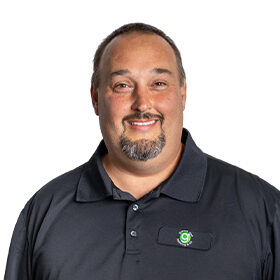No Wilmington, NC, homeowner wants to deal with an air conditioner that gives out during the hottest period of the year. It’s inconvenient, uncomfortable, and perhaps even dangerous. The good news is that most AC problems are avoidable, or at least manageable, earlier than an outright failure. Let’s explore the precautions the experts recommend when trying to avoid summertime HVAC hassles.
Check Attic Insulation and Ventilation
The temperature of an attic plays a much bigger role in AC performance than many homeowners realize. Your attic should be hot. In fact, 10 to 20 degrees above ambient temperatures is normal. The problem is that attics often get much hotter than that. In the South, attic temperatures can rise as high as 130 to 160 degrees Fahrenheit. This can put a great strain on your AC unit.
Homeowners dealing with this problem will want to schedule an attic ventilation inspection. The current passive ventilation may not be enough. You may need to upgrade it or even install a mechanical ventilation system. It’s also important to upgrade the attic insulation as needed. Adequate insulation will help to avoid an exchange of heat energy between the hot attic and cool indoor living spaces.
Schedule a Spring AC Tune-Up
You should schedule a professional AC tune-up in the spring before you need to run your air conditioning. If you have an active AC warranty, your coverage provider likely requires routine maintenance. The Department of Energy (DOE) recommends maintenance because it can lower cooling costs by up to 10%. It also helps to avoid a wide range of problems. This is because your technician will clean your equipment, lubricate it, test it, calibrate it, etc. Your technician can also spot problems early and recommend proactive repairs that can save you money and hassle.
Keep the Outdoor Unit Unobstructed and Clean
Most homes in this region have a split AC unit. That means that there’s indoor and outdoor components being used. The outdoor unit is known as the condenser unit. It houses a condenser pump, condenser coil, condenser fan, and refrigerant system. These are all parts that are susceptible to major repairs. At the start of spring, you should clear out all leaves and other debris from the condenser cage. You should also maintain a 1.5- to 2-foot clearance around the condenser unit. This includes grass, bushes, and overhanging branches. As the spring and summer unfold, check the condenser unit each week. Clear it out again as soon as you notice leaves, branches, and other items accumulating.
Use an Appropriate HVAC Filter
All central AC systems have one or more supply vents. Those vents require an air filter to protect the indoor AC equipment and to maintain good indoor air quality. It’s important to use the right filter. The wrong filter can restrict airflow too much and result in a wide range of problems.
HVAC filters have a minimum efficiency reporting value (MERV) rating. You want a filter with the highest MERV your AC system supports, but not above. This will usually be between MERV 8 and 13. If you’re unsure where to find this information, you can ask your technician during your AC tune-up.
Check the Filter Regularly and Swap It Out as Needed
An HVAC filter will also obstruct airflow when it clogs. You should check the filter once a month, and perhaps more often if you have a large household with pets. Swap it out as needed. You should also replace a filter if it makes a whistling sound.
Test Your Thermostat and Replace Batteries as Needed
Your technician should clean, test, and calibrate your thermostat during your AC tune-up. If you don’t schedule one, it’s important to remove the faceplate and clean the contacts. If your unit uses batteries as a primary or backup power source, check the batteries and replace them if necessary.
Open Your Return Vents
A common mistake homeowners make is closing vents in unused rooms in the hopes of saving money. At best, it will disrupt airflow and may lead to uneven cooling elsewhere in the home. It can also cause increased energy consumption and AC wear and tear.
Monitor Your Electricity Bill
Your electricity consumption is often the first indication that something is wrong with your AC system. You should monitor your consumption from month to month and year to year. Be mindful that electricity rates go up. However, if you notice what seems like a spike, check your data. If your consumption has gone up, call a professional right away to come out and inspect the system. A task like replacing a bad capacitor or fixing a microleak can be relatively inexpensive if you identify the problem early.
Don’t Ignore Tripped Circuit Breakers
An isolated incident of your AC tripping its circuit breaker isn’t typically cause for concern. A series of tripped circuit breakers warrants attention. If you experience a tripping breaker, reset it, and restart your AC. If it trips again, leave it alone and call a professional to come out and inspect the system.
Listen for Hard Starting
A common cause of an AC tripping its breaker is hard starting. You may even be able to hear it before it starts doing that. If your outdoor unit—the condenser pump—makes loud noises or vibrates excessively when it kicks on, that’s not normal. You should turn the system off and call for a repair before more serious damage develops.
Pay Attention to Unpleasant Odors and Strange and Loud Smells
Over the period that you live in your home, you get to know your AC system. Don’t ignore the signs it’s giving you. Strange and/or loud noises when your AC turns on or off aren’t normal. Something is wrong. You may, for instance, have a bad bearing in the blower motor.
Don’t Ignore Warm Spots Throughout the Home
Central air should provide even cooling throughout a home. If you have an area of your home that’s a bit warm, you have an airflow problem. It could be the blower set too low or leakage in the ducts. If you experience temperature differences of two degrees or more, you likely have a serious air balancing issue.
Keep an Eye on Humidity
It can get quite humid in Wilmington in the summer, and your AC can struggle to keep up. You’ve probably experienced a home that was cool but still a bit muggy. This can indicate a wide range of problems, including a dirty evaporator coil, a refrigerant leak, or a clogged condensate drain line.
Your Local AC Pros in Wilmington
If you live in Wilmington or the surrounding areas and need AC repair, Green Dot Heating & Air is the company to trust. Our NATE-certified technicians install new air conditioners, maintain, and repair all AC brands and models. We also specialize in gas and electric furnaces, heat pumps, and ductless mini-splits. We install ductwork and configure smart thermostats. We also have indoor air quality specialists that install whole-house air cleaners and UV lamps. Call us today or contact us online to schedule an appointment or learn more about these products and services.
Services We Offer Include:







